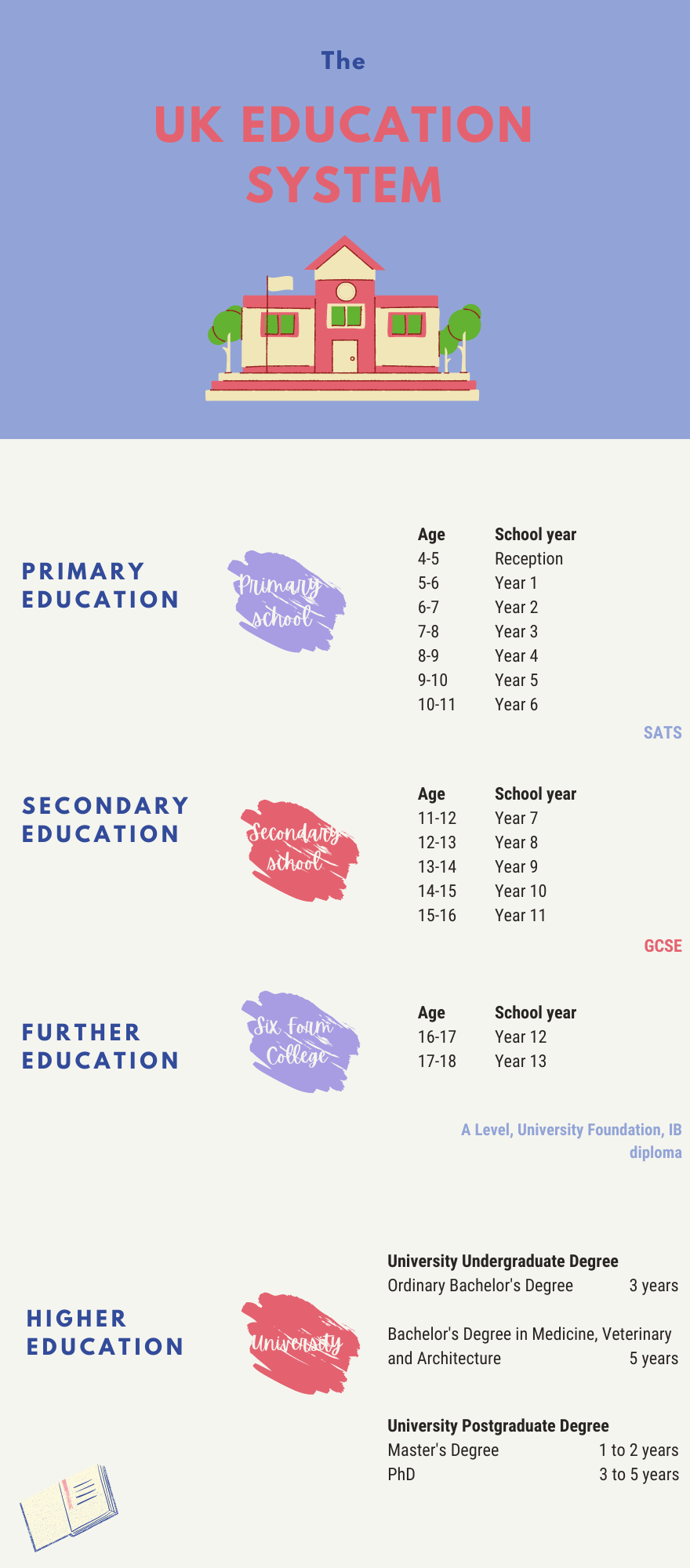Navigating the UK Educational System and Discovering Your Pathway to Higher Studies in England
The UK Educational System has been and is still a solid column of the British culture. UK universities have a several century-long tradition of excellence. Some British Universities are known worldwide and continue to attract high-quality students and teachers from around the world. The UK offers a wide range of educational opportunities. In this article, you will find a short overview of the UK school system, the existing pathways to British Universities and the various degrees available.
Mastering English at a high level is your passport to the British school system. Prepare yourself to embrace the UK study opportunities while learning English in a London school of English.
Overview of the UK Educational System
The British school system is composed of 4 stages:
- Primary Education
- Secondary Education
- Further Education
- Higher Education

Most British universities and higher education institutions require British students to have an A Level or their equivalents (such as BTECs, International Baccalaureate (IB), or Scottish Highers) to apply to University. A level or BTEC are diploma earned after 13 years of studies. 3 A2 level courses are usually necessary to apply to a British University. Universities may require specific A Level courses depending on the course elected. BTEC Level 3 diplomas are also a passport to University. They are vocational diplomas usually earned at Further Education Colleges.
British students also need to reach minimum GCSE grade requirements (for example, five GCSEs in grades 9-4/ A* to C including English Language and Mathematics). GCSE is a diploma earned after 11 years of studies.
Exploring Higher Education’s Qualification Options
Like every country, the UK has its education system. With that comes specific terminologies and qualifications that you might not be familiar with. Here is a little sum up:
1. Undergraduate degrees
- Higher National Certificate and Diploma (HCN/HND)
HNCs and HNDs are work-related programmes offered by UK institutes of higher and further education. They are meant to provide you with specialized work skills and emphasis on “learning by doing.” A year is required to complete a full-time HNC. An HND is the next step up, taking two years full-time to complete. An HND is roughly similar to the second year of university. People usually study a HND and use it as a basis for a full degree.
HNCs and HNDs are on average, cheaper than other undergraduate degrees, as a year costs generally between £4,000 and £8,000.
- Certificate Continuing Education (CertCE)
A CertCE will give you 60 credits, just like the first year of an undergraduate degree (which is 180 credits). People usually complete their CertCE within 8 months to a year. It is a recognized qualification that can be used to pursue a full undergraduate degree if you want to.
- Certificate and Diploma of Higher Education (CertHE/DipHE)
A CertHE is equivalent to one year of full-time study, while a DipHE is equivalent to two years of full-time study. These are frequently issued if you drop out of a degree program early, but they can also be used as stand-alone qualifications. If you don’t think you’ll be able to commit to a full degree, you might want to consider a CertHE or a DipHE. Although these qualifications are not as long as a bachelor’s degree, the teaching quality is comparable.
- Foundation Degree (FdA)
FdA is a vocational alternative to a regular degree. They combine practical work-based learning with an academic dimension. Once you have completed a FdA, you can work or choose to continue your education.
- Top-up Degree
A Top-up degree is made for people who have already completed an HND, a Foundation degree or a DipHE. It takes one year to complete a Top-up degree. It then enables people to join the final year of university study to have a full degree at the end.
- Bachelors Degree
A bachelor’s degree is the most popular and the most common type of undergraduate students take after having completed their A-levels. A bachelor’s degree is generally completed in three years. Its content and structure depend on the subject and the university you will choose.
2. Postgraduate qualifications
After completing your undergraduate education, you can choose to continue your education with a postgraduate degree such as:
- Masters (MA, MSC, MBA)
They are the most popular postgraduate degrees. They allow you to specialize or to study a whole new subject. You can either choose to study a taught master’s degree, with academic courses and modules or you can decide to do research (Master of Research or Master of Philosophy).
Once you have completed your master’s degree (generally in a year or two), you can continue your education and do research.
- Doctorate (PhD)
At the end of a Doctorate, once you have published your research after years of independent work, you can be called “Dr”, which is a highly regarded title.
Find more useful information about studies at British Universities in our dedicated Blog.
